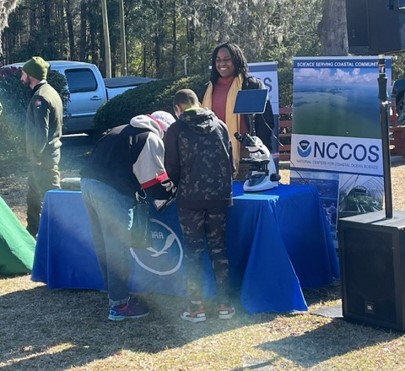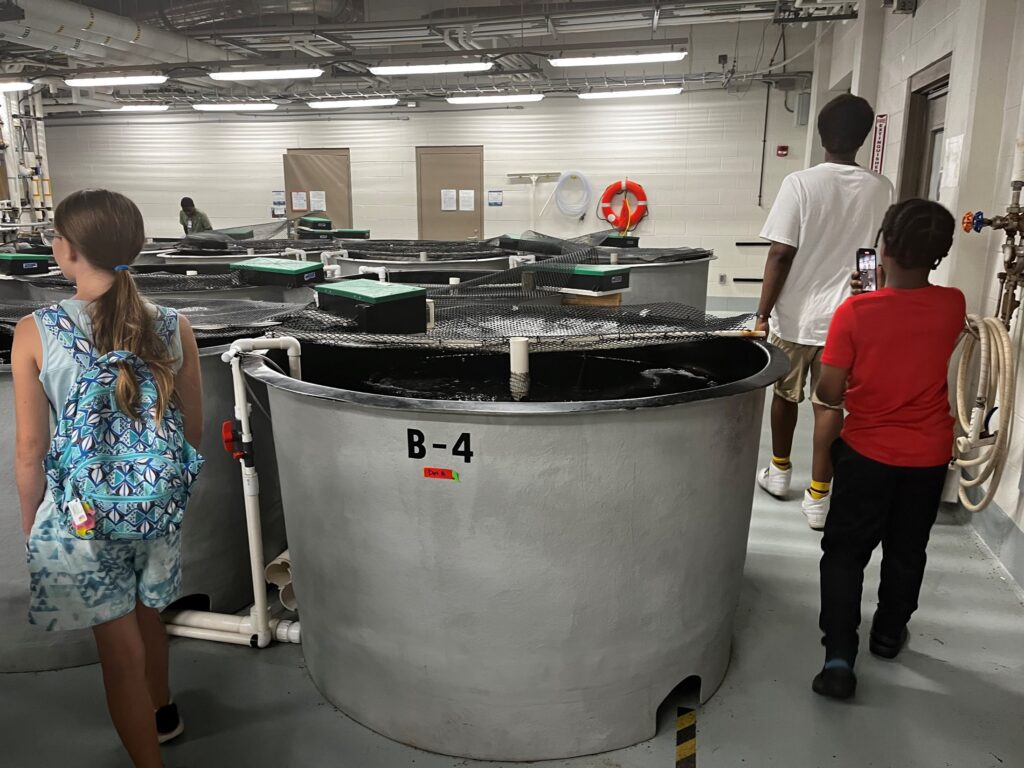NOAA’s National Centers for Coastal Ocean Science is embarking on a new partnership that combines science and tradition to help preserve a rich culture in South Carolina’s Lowcountry. The NCCOS Aquaculture Phytoplankton Monitoring Network program has joined a science program titled “Gullah Geechee Participatory Science Approach to Monitoring Aquaculture Farms and Preserving Tradition.” Through this program, our scientists will work with Gullah Geechee commercial fishermen and aquaculture farmers in South Carolina to help local school children learn about traditional fishing techniques, build skills to monitor their coastal waters for excessive nutrients, and identify harmful algae that can produce dangerous toxins which contaminate seafood.
Gullah Geechee people are descendants of West African tribal members who were enslaved on coastal plantations in North Carolina, South Carolina, Georgia, and Florida. This region was designated the Gullah Geechee Cultural Heritage Corridor by Congress in 2006 under the National Heritage Areas Act. The culture of the Gullah Geechee people has heavily influenced southern culture and cuisine. Seafood, gathered through commercial and subsistence farming is a dietary staple and critical to the livelihoods of many within these communities. There is a growing interest in developing aquaculture operations to enhance their economy.

A recent educational event hosted by the Sea Islands Heritage Academy – a school with a curriculum deeply rooted in Gullah Geechee culture – in St. Helena, South Carolina enabled NCCOS scientists to recruit students to enroll in this participatory science program that will help monitor aquaculture farms for harmful algae and nutrients.
Encouraging children to get involved in monitoring water quality inspires interest in hands-on science while helping them preserve the fishing culture of their community. The Aquaculture Phytoplankton Monitoring Network team along with the Sea Islands Heritage Academy, and Atkins Live Bait Shop will hold several workshops with the community to build skills on traditional fishing techniques, testing for nutrients among other physical parameters, and identifying harmful algae that can affect their harvests.
As part of this educational experience, participating students had the opportunity to tour the Hollings Marine Laboratory in Charleston, SC to learn about ongoing research activity and potential career paths in the sciences. They examined sediment and phytoplankton samples captured in photos through the scanning electron microscope; roamed through a large room containing aquaculture tanks and learned about the process and equipment needed to run them; explored tanks of shallow water coral and learned how they eat, and diseases that affect them; examined a dolphin skull and learned how scientists perform necropsies to determine cause of death and discover pollutants in coastal waters; and discussed the importance of forensics of marine species to prosecute or exonerate poachers. Throughout the tour, students engaged with scientists, asking thoughtful questions, and sharing personal experiences. Through this partnership, NCCOS and the Sea Islands Heritage Academy founder hope to make this educational experience a regular occurrence.

This project was funded by the 2023 National Marine Fisheries Service Office of Aquaculture Internal Competition for Aquaculture Funding (ICAF).
Visit the Phytoplankton Monitoring Network webpage to learn more about this participatory science effort.
View additional NCCOS equitable science projects, news, and helpful resources.
